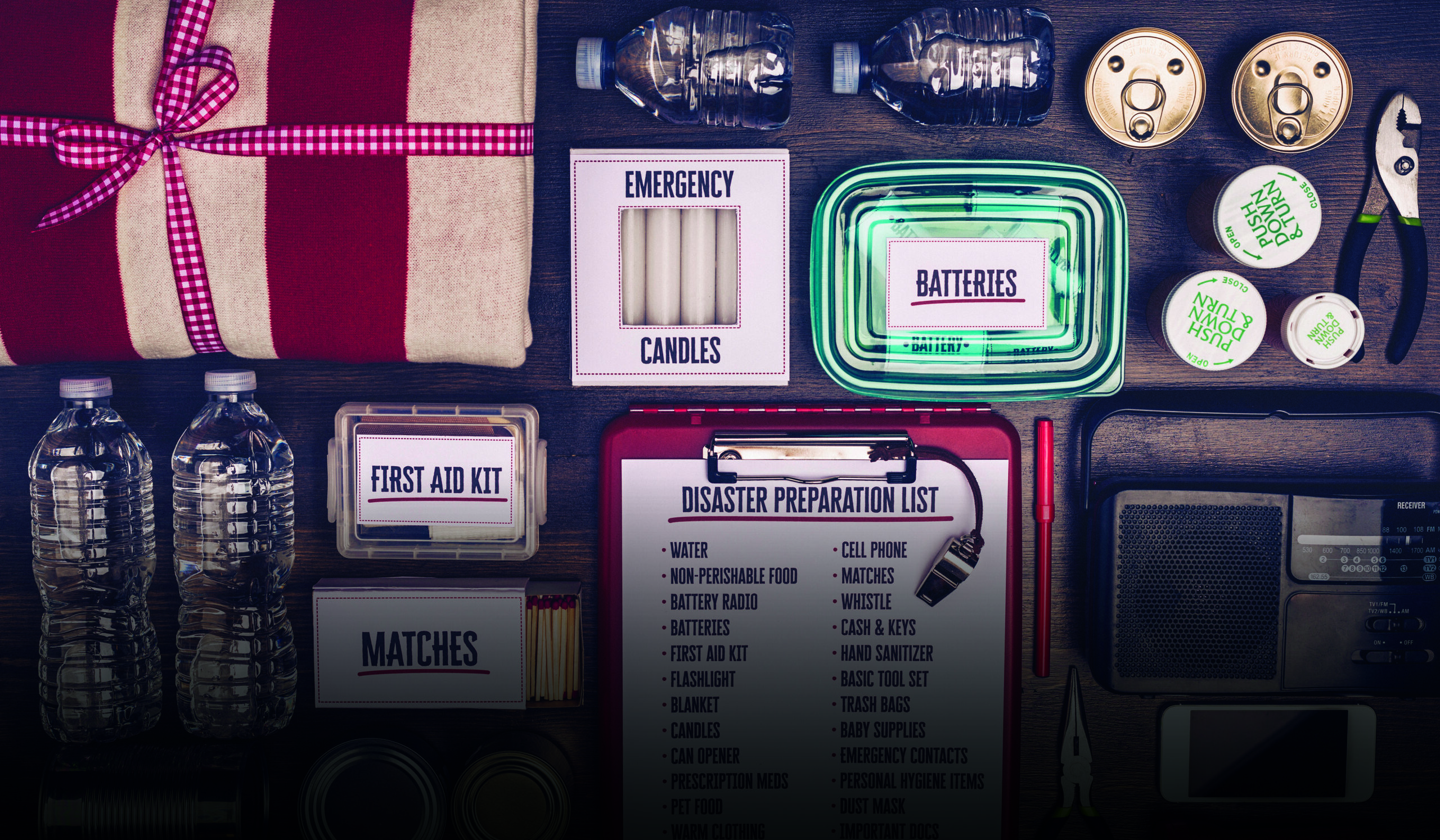Hurricanes destroy homes, businesses and even lives if they are not taken seriously. Here are some tips to navigate the hurricane’s dangers and protect your loved ones and finances.
Keep Informed
Hurricane season (usually June 1st through November 30th) means keeping an eye on local news updates and weather reports. An essential source for information about tropical storms and hurricanes is the National Hurricane Center (www.nhc.noaa.gov) which has maps with tropical storm forecasts and current activity. Develop an evacuation plan for your family and household members, including meeting points and communication methods.
Strongly Consider Evacuation
You should strongly consider evacuating to a safe area, even if the authorities have not issued mandatory evacuation orders. Hurricane winds and water can be hazardous, especially if there are large trees near your home. Storm surges can be unpredictable, resulting in severe flooding.
Your area may have pre-planned evacuation routes which can be used to escape the oncoming storm; however, if you wait too long to evacuate, the routes may be overburdened with traffic resulting in long delays and frustration. During the evacuation, keep all of your receipts (hotel, gasoline, food) so you can seek reimbursement from your insurer.
Preparing for Evacuation
When you learn a hurricane is approaching, you should also fill your vehicle’s gasoline tank and an extra gasoline container. Bring cash, a first aid kit, food and water, extra clothing, blankets, medicine, personal hygiene items, important documents and pet supplies. Bring your most important documentation with you, including identification, medical insurance cards, insurance policies and family photos.
Documenting and Insuring Your Home and Belongings
Before a hurricane, document your home and its contents for insurance purposes. Take photographs or videos of each room, capturing details of valuable items. Store these records digitally or physically in a safe place. Maintain an updated inventory of your belongings, including descriptions, values and receipts for your valuable items. Review and update this inventory annually. You should regularly ensure you have enough insurance to rebuild your home should the worst happen. Contact your insurer before a storm is imminent to address that need. When determining coverage amounts, it is crucial to remember that water mitigation can be costly and reduces the coverage available under Coverage A- dwelling.
Safeguarding your Documentation
Protect your important documentation during a hurricane. Store hard copies in a secure, waterproof container or off-site in a safe deposit box. For digital copies, use cloud storage services.
Secure your Home
Protect your home by reinforcing doors and windows with storm shutters or plywood. Many homeowners in the South have taken the precaution of removing large trees near their home. At the very least, overhanging tree limbs should be trimmed. Clear your yard of loose items, such as lawn furniture, which could become projectiles in high winds. Consider installing an automatic generator in the off-season so your home will have electricity after a storm.
Safety During the Storm
If you choose not to evacuate, keep your family safe indoors and avoid using the roads. Stay away from windows, skylights and glass doors. Seek shelter in the interior of your home, preferably in a windowless room on the lowest level. If there is flooding, seek higher ground.Avoid using candles. Use battery-powered lights instead to minimize fire risks. Use an emergency radio or mobile phone to receive updates and instructions about the storm.
Post-Storm Safety
Be aware of downed power lines, broken tree limbs, sharp debris and potential structural damage when going outside. Stay away from floodwaters, which may be contaminated or hide other dangers. Use extreme caution if using a generator, following the manufacturer’s instructions carefully. Never use a generator indoors, near a window or beneath the eaves where carbon monoxide can enter your home through the attic. Contact local authorities to report any hazards or emergencies. Be sure to stay hydrated in the post-storm heat and humidity.
Dealing with your Insurance Provide
Review your insurance policy and promptly contact your insurer to file a claim if your home or possessions are damaged. Provide your insurer with the information it needs to estimate the damage to your home. Cooperate with the insurance adjuster and point out the areas of damage.
If you suspect your insurer is not treating you fairly, contact an attorney promptly to protect your rights.
Conclusion
It is crucial to stay safe during a hurricane. Thorough preparation will maximize your safety and help during the recovery process. Follow these safety tips before, during and after the storm. Combining these essential tips for preparedness and insurance documentation can increase your safety during a hurricane and protect your financial well-being in its aftermath.








Leave A Comment